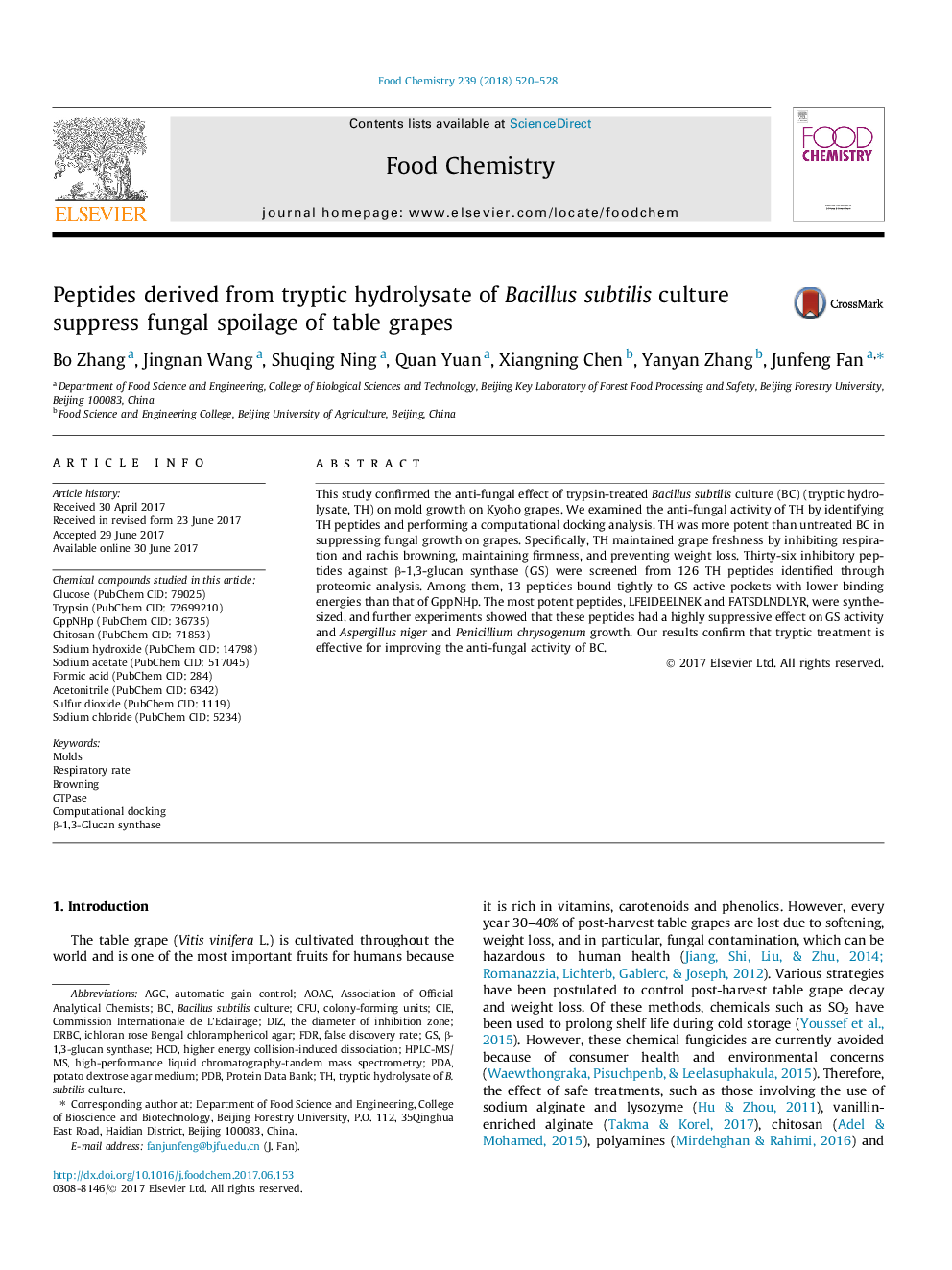| Article ID | Journal | Published Year | Pages | File Type |
|---|---|---|---|---|
| 5132995 | Food Chemistry | 2018 | 9 Pages |
â¢We evaluated the antifungal activity of Bacillus subtilis culture hydrolysate.â¢Tryptic treatment improves antifungal activity of B. subtilis culture.â¢The hydrolysate suppresses fungal growth on grapes and maintains grape quality.â¢36 Anti-fungal peptides are identified from the tryptic hydrolysate.â¢Two peptides suppress β-1,3-glucan synthase and mold growth.
This study confirmed the anti-fungal effect of trypsin-treated Bacillus subtilis culture (BC) (tryptic hydrolysate, TH) on mold growth on Kyoho grapes. We examined the anti-fungal activity of TH by identifying TH peptides and performing a computational docking analysis. TH was more potent than untreated BC in suppressing fungal growth on grapes. Specifically, TH maintained grape freshness by inhibiting respiration and rachis browning, maintaining firmness, and preventing weight loss. Thirty-six inhibitory peptides against β-1,3-glucan synthase (GS) were screened from 126 TH peptides identified through proteomic analysis. Among them, 13 peptides bound tightly to GS active pockets with lower binding energies than that of GppNHp. The most potent peptides, LFEIDEELNEK and FATSDLNDLYR, were synthesized, and further experiments showed that these peptides had a highly suppressive effect on GS activity and Aspergillus niger and Penicillium chrysogenum growth. Our results confirm that tryptic treatment is effective for improving the anti-fungal activity of BC.
